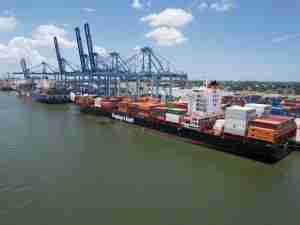Currently, the Dutch ports handle 1.5 million tonnes of biomass each year, but as a result of the growing requirement for biomass in North European countries, it is expected this will increase to around 13.5 million tonnes by 2020.
The port of Amsterdam already handles some biomass from source countries including Canada, the US and Brazil, but it expects its volumes to reach six million tonnes by 2020.
To meet the expected growth in this sector, the port will allow existing fossil fuel terminals to expand but will not allow the building of any new ones as it increases its focus on bio-energy.
Also, in co-operation with the port of Duisburg, Port of Amsterdam is redeveloping a transhipment terminal in Duisburg to enable the storage and transhipment of biomass to Duisburg for customers from Amsterdam.
Where possible, Port of Amsterdam has also been supporting businesses hoping to benefit from the growth in biomass through a range of activities, such as conducting in depth market studies, promoting biomass in source countries and establishing contacts with hinterland customers.
Managing Director of the Commercial Department of Port of Amsterdam Koen Overtoom says the growth in European biomass demand is largely due to moves by Germany to phase out its nuclear power stations by 2022 and an increased focus by other European countries on energy sources that are less polluting than fossil fuels.
But the port also hopes to benefit from proposals recently unveiled in the Dutch Government’s Energy Report 2011, which include a requirement to make the use of some biomass mandatory at the country’s coal-fired energy plants and for the nation’s use of renewable energy to be increased from 4% in 2010 to 14% by 2020.
In anticipation of the new proposal being passed, some coal fired power stations in the south of the country are already blending in biomass.
Overtoom says it is estimated that by 2020, the Netherlands, Germany, Scandinavia and the UK will require 15 million tonnes of biomass per year.
“As a result, the port of Amsterdam will acquire a significant market share in the north-west European market for biomass transhipment,” says Overtoom.
“The port of Amsterdam is strong in energy,” he adds. “Most of the cargo that moves through the port of Amsterdam consists of oil and coal.
“This provides the energy that the Netherlands, the rest of Europe and other countries in the world so greatly need.”






_-_28de80_-_58820516bd428ab3fd376933932d068c43db9a4a_lqip.jpg)




